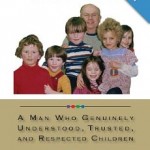 Recently I was doing a workshop on multiple intelligences for a group of teachers, and I started talking excitedly about the educator John Holt, who leaped to fame in the 1960’s with the publication of his best-selling book How Children Fail, and who later became one of the founders of the homeschooling movement in the United States. In the middle of my remarks, I suddenly stopped and asked: “How many people here have heard of John Holt?”
Recently I was doing a workshop on multiple intelligences for a group of teachers, and I started talking excitedly about the educator John Holt, who leaped to fame in the 1960’s with the publication of his best-selling book How Children Fail, and who later became one of the founders of the homeschooling movement in the United States. In the middle of my remarks, I suddenly stopped and asked: “How many people here have heard of John Holt?”
No one raised their hand.
True, this was a group of younger teachers, but I was still rather shocked to learn that an educator who had had such a big impact on how many educators think about children and schooling, was unknown to these teachers. Fortunately, a new book has just come out that seeks to introduce this seminal thinker to a new generation of educators: The Legacy of John Holt: A Man Who Genuinely Understood, Trusted, and Respected Children. This book consists of sixteen essays by people who knew John and/or who were powerfully influenced by the example of his writings and life.
We hear from old friends, such as Strobe Talbott, former Deputy Secretary of State in the Clinton Administration, from individuals–now grown-up–who experienced John’s humanity as children, from educators like myself, who were influenced by John as part of their development as teachers (my chapter in the book is entitled: ”Cracker-Barrel Writing”), from Merloyd Lawrence, a renowned editor who worked closely with him on several of his books, from Pat Farenga (and associates) who helped John run his homeschooling organization Growing Without Schooling, and from many other educators and parents whose lives were changed by John’s educational philosophy and the example of his life.
We learn a great deal about John’s humanity in reading this book: his love of music (he took up the cello at age 40 to prove that it was ”never too late” to learn something new), his sense of humor, his care for nature (he provoked controversy in his neighborhood by being an early urban composter), his humility (he considered his success an ”accident”), his deep dislike of traditional schooling, and his ultimate respect for children and how they need to learn free from coercion, confusion, standardization, and condescension.
I encourage readers to get this book, learn something about John’s life, and then go out and get his own books, which also include: Instead of Education, How Children Learn, Teach Your Own, and Learning All the Time. I was greatly influenced by John’s philosophy in my own writings on the natural genius of children. John’s perspective is badly needed in today’s dehumanizing educational climate of data-mining, standardized testing, so-called ”rigor,” and artificial standards.


















